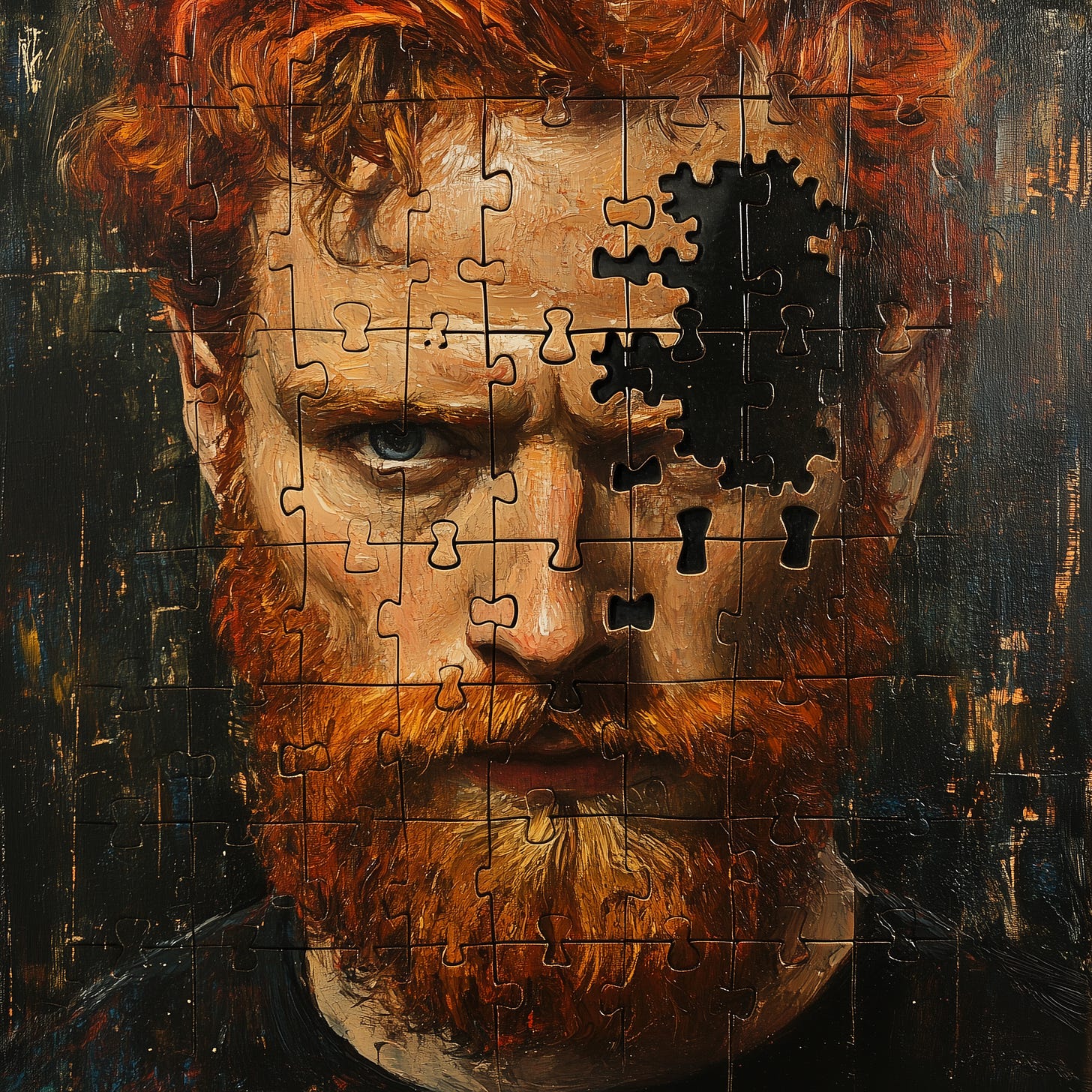Some of you know, and some of you don’t. My life has been anything but straightforward. For the first 12 years of my childhood, my father treated me in ways I couldn’t bear to remember, so I buried those memories to survive. Three years ago, during a complete mental and emotional breakdown, those memories resurfaced. What began as a painful reckoning ultimately brought me back to peace with myself and sparked my spiritual awakening.
The courage of Gisèle Pelicot, who bravely made her court hearing against her abuser and husband public, has been a profound source of inspiration for me. Her example made me realize how tired I am of carrying the shame that was never mine to begin with. Writing this book and sharing it chapter by chapter with the public is my way of reclaiming my power and returning the shame to where it truly belongs.
The Missing Piece
Part I: Fragments of a Childhood
Fragment 1: Early Dreams
I don’t remember being born, but I know I entered this world innocent and pure. Unfortunately, that purity didn’t last long. I also don’t recall the exact moment my innocence was first taken from me, but I know it happened before I could even speak.
My earliest conscious memories of childhood feel unusual. One of them is a recurring nightmare—the same unsettling dream, night after night. I would be lying in my bed, and in the dream, I’d wake up. The room was dark and frightening. I wanted to get to the door, to escape, but the space was filled with thick, impenetrable spider webs. The more I struggled to leave, the more I became entangled, lost in the sticky threads. Eventually, I’d wake for real, twisted and upside down in my bed, my head where my feet had been and my feet where my head once rested.
That waking moment was often scarier than the dream itself. For a disorienting stretch of time, I didn’t know where I was. I couldn’t even locate the door to my room. Though my eyes were open, I remained trapped, panicked, and utterly lost in the lingering shadows of my dream.
Then, one day, the dreams stopped. Or rather, I stopped remembering dreams at all. Around that time, my sister and I developed a morning routine: once we were sure our parents were awake, we’d go into their bedroom. My sister loved climbing into their bed. She would be eager to join them, basking in the warmth of the family nest. I, on the other hand, was hesitant. But the thought of being excluded—left alone in the vastness of my home—was worse than my reluctance. So I would follow, sitting stiffly at the edge of their shared joy.
The same questions always came: “Did you sleep well? What did you dream?”
My sister had answers. She would recount vivid dreams filled with adventure and whimsy. I, however, had nothing. The time between going to bed and waking up was an unbroken void, a black hole of unconsciousness. Oddly enough, I preferred it that way. Sleep became my refuge, my favorite part of the day—not because of what happened, but because nothing did.
Still, I didn’t want to admit that I couldn’t remember and I made up stories. The dreams I invented were simple, always about animals—often giraffes for some reason. My stories were less about creativity and more about survival. I was torn—uncomfortable being in that room yet also fearing being all alone, a pup without his pack.



I also don't remember a lot about my childhood. I used to think I just had bad memory. My mom and my brother would talk about things that happened and I'd be completely shocked because I didn't remember a thing. For example, we went to a restaurant last year near where we used to live and I enjoyed the food so I said, "Wow, this place is great. I wonder why we never tried this place back then." And they proceeded to tell me, "What do you mean? We used to go here all the time." Through therapy and reconnecting with my family, I realised that there are whole chunks of my life that I somehow erased because of trauma. Since I made a commitment to heal myself in the last few years, those memories have slowly been resurfacing. It's a tough ride, but I know this is necessary to finally be able to live peacefully.